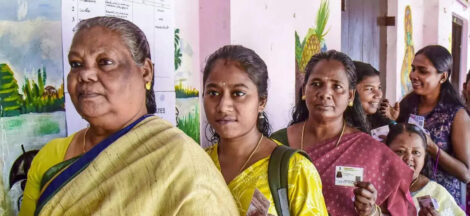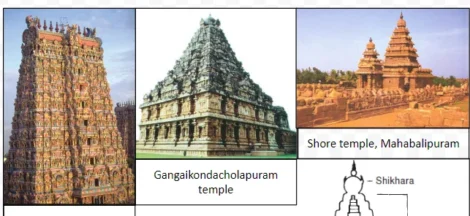By
Amulya Ganguli
Three
decades after the BJP began using the Ram temple issue via the party’s Palampur
resolution as a political gambit, it is again hoping to cross the hurdle of the
forthcoming general election by exploiting Hindu religious sentiments.
To
do this, the party will expect a favourable judgment from the Supreme Court on
the subject in the next few weeks. But the party must be keeping its fingers
crossed for one can never be sure.
It
is unlikely that the BJP and the Sangh Parivar have a Plan B in case the
verdict does not meet their expectations. For one thing, a resort to violence
in such an eventuality will be counter-productive although the RSS has warned
of a revival of a movement on the lines of what happened in 1992-93 if the
ground is not prepared for building the temple either via the judgment or a
law.
It
may be recalled that countrywide riots had followed the demolition of the Babri
masjid in 1992 and the subsequent terrorist attacks in Mumbai in the following
year. When the general election is due, however, in three or four months’ time,
violence will damage the party and the parivar rather than help them although
at one time, the belief was that a riot tends to consolidate the Hindu vote in
the BJP’s favour.
But
the times have changed. In an India of malls and multiplexes where the burgeoning
middle class believes in a consumerist culture, any large-scale disturbances
are unwelcome to a political party, especially in a metro.
Yet,
a favourable judgement has become a must for the BJP because it believes, as
does the RSS, that in the absence of “achhe din” when unemployment is making
the youth turn away from the party unlike five years ago, the temple remains
the Hindutva camp’s only viable electoral card.
Neither
the supply of cooking gas connections, nor the schemes for rural electrification
and cheaper houses, nor the (largely empty) Jan Dhan bank balances, nor the
promise of higher minimum support prices for crops is enough to set off the
kind of a wave which swept the BJP to power in 2014.
The
reason is that these endeavours do not make a dent in the unemployment problem,
which can only be solved via substantial industrial and social services
investments by the private sector.
But
these are absent because of the atmosphere of tension and fear which prevails,
especially among the minorities as a result of the violent antics of the
gaurakshaks and others in the saffron fringe whose latest objective is to stop
the new year’s day celebrations.
Since
the BJP’s failures have been on two fronts – economic and social – the RSS had
begun to initiate steps on the temple to recover some of the lost ground which
is already evident in the BJP’s defeats in the Karnataka, Rajasthan, Madhya
Pradesh and Chhattisgarh assembly elections.
In
its eagerness to play the temple card, some of the RSS spokesmen had even begun
to criticize the judiciary, expressing surprise that when the court could meet
at midnight to decide on a case concerning a terrorist, why it chose to take
its time in considering the temple issue.
In
some of these statements, including BJP president Amit Shah’s advice to the
judiciary not to give orders which cannot be implemented, as in Sabarimala, the
parivar’s unease with the present constitutional order is apparent.
The
Hindutva camp has always believed that the constitution is largely based on a
Western model whereas the founding fathers should have closely followed the
diktats in the Manusmriti, which reflect the Indian reality.
It
is this mindset which made the saffronities say in 1992-93 that the courts can
have no say in a matter of faith such as the putative birthplace of Lord Ram.
The
same attitude makes the Hindutva lobby decry the judicial orders on the Diwali
and dahi-handi celebrations with Meghalaya’s saffron governor, Tathagata Roy,
asking why the court doesn’t ban the azaan, the call for prayers from mosques.
The
BJP, however, has become more cautious about what to say about the judiciary
and the constitution, with Prime Minister Narendra Modi describing the
constitution as a holy book. The party now prefers to leave it to the RSS and
the likes of Roy to express what can perhaps be called the parivar’s real mind.
But
the big test for the BJP about its adherence to the constitution will come when
the Supreme Court delivers its Ayodhya verdict, especially if it is not fully
to the saffron camp’s liking.
For
the RSS, however, it is a question of now or never. If work is not started soon
on building the temple, it will never be done since the BJP’s political
prospects do not look very bright.
Even
if the National Democratic Alliance (NDA) gets a majority, the BJP will not be
able to push the case for the temple if it doesn’t have a majority of its own,
which looks unlikely, for as the Lok Janshakti Party’s Chirag Paswan has said,
the temple is the BJP’s agenda, not the NDA’s. (IPA Service)
The post Ram Temple: Rss’s Now Or Never Moment Is Here appeared first on Newspack by India Press Agency.



